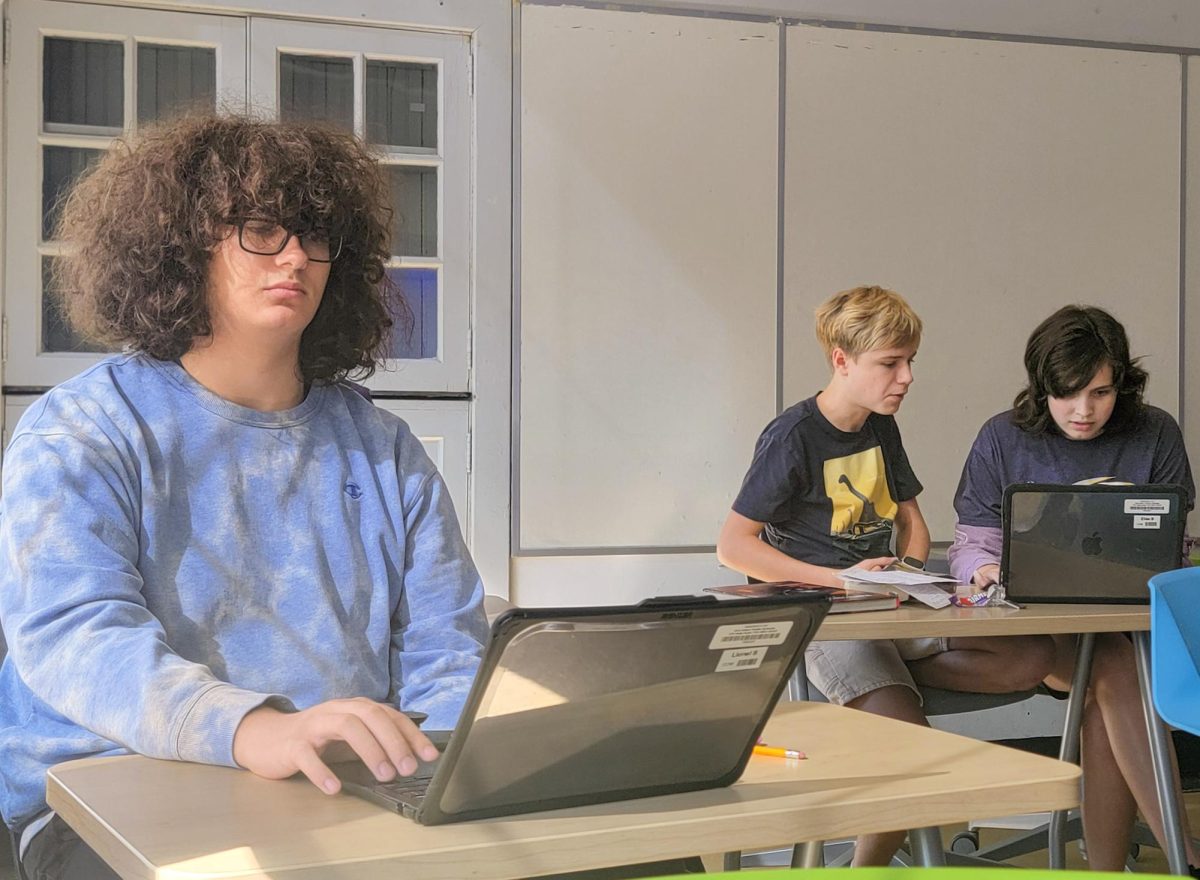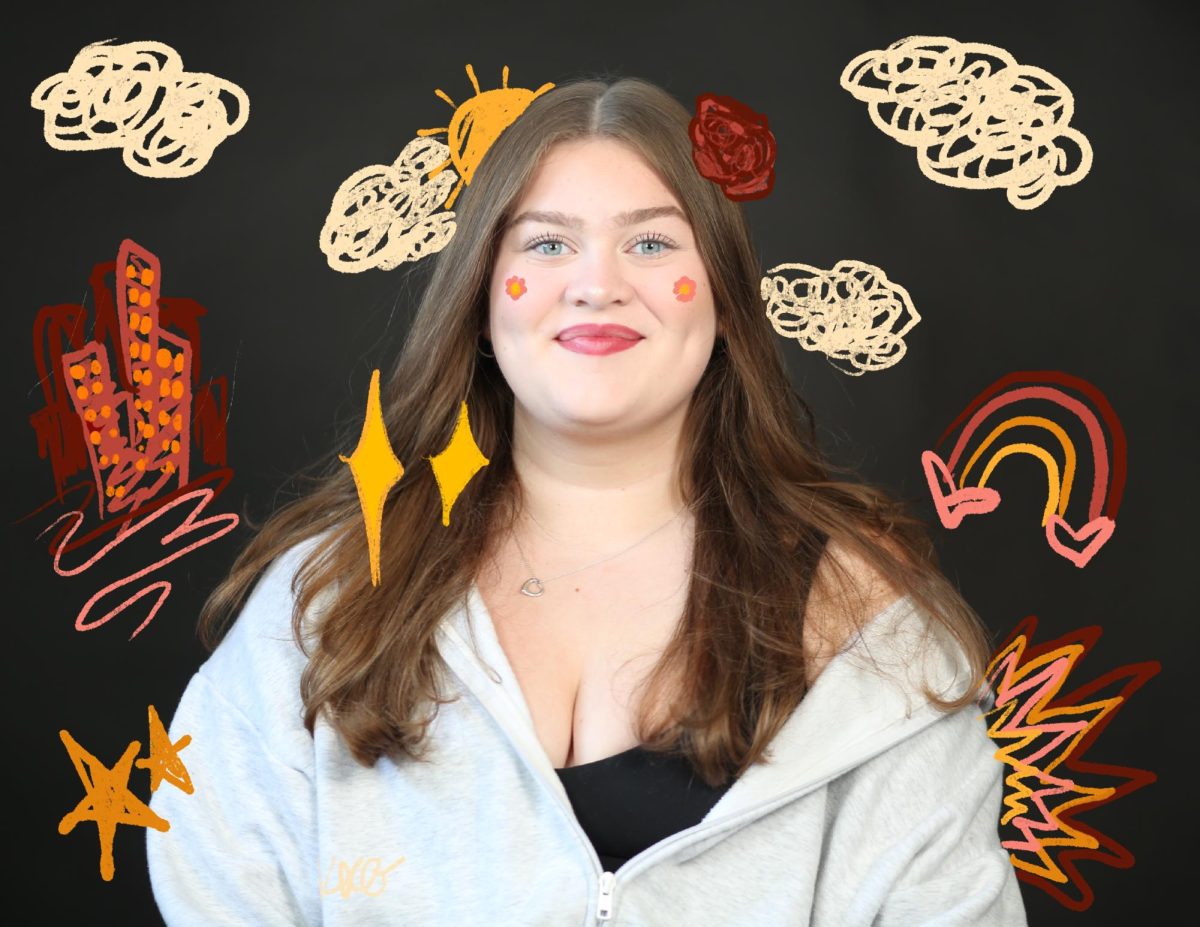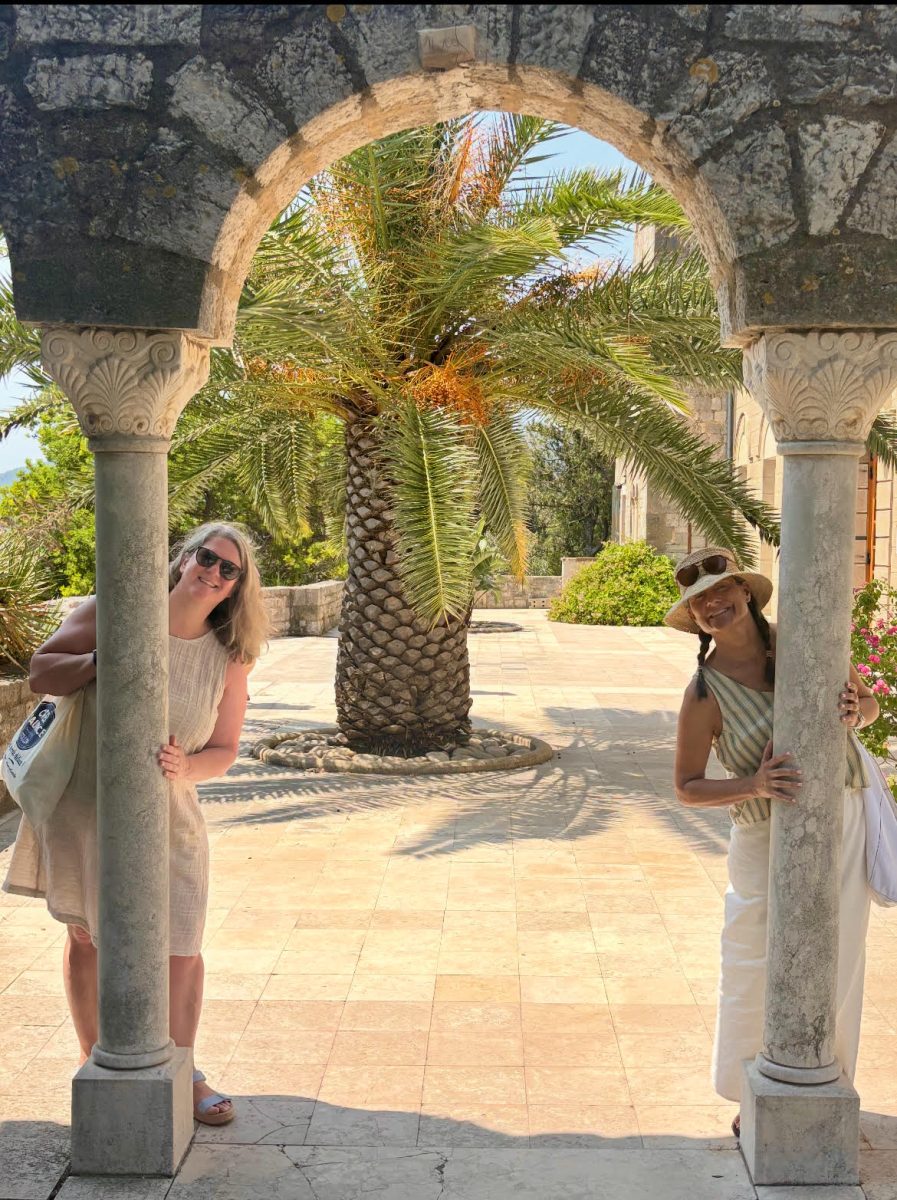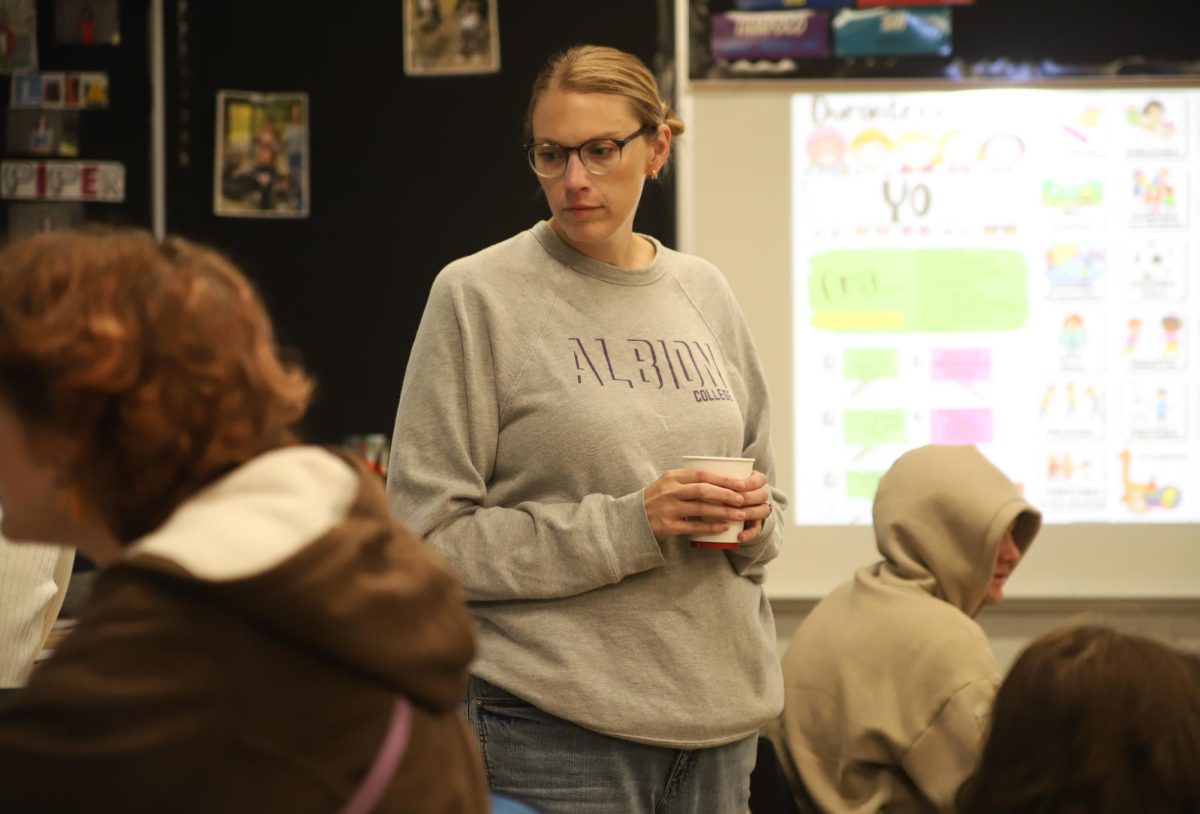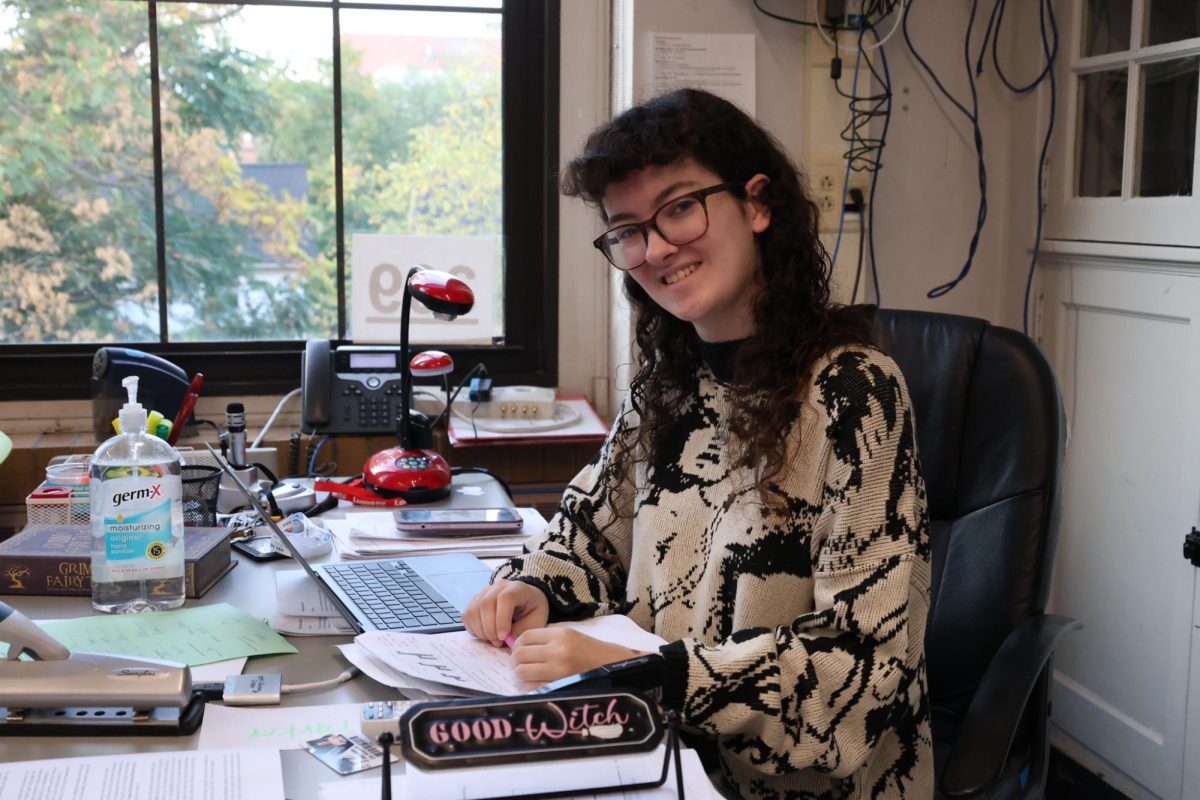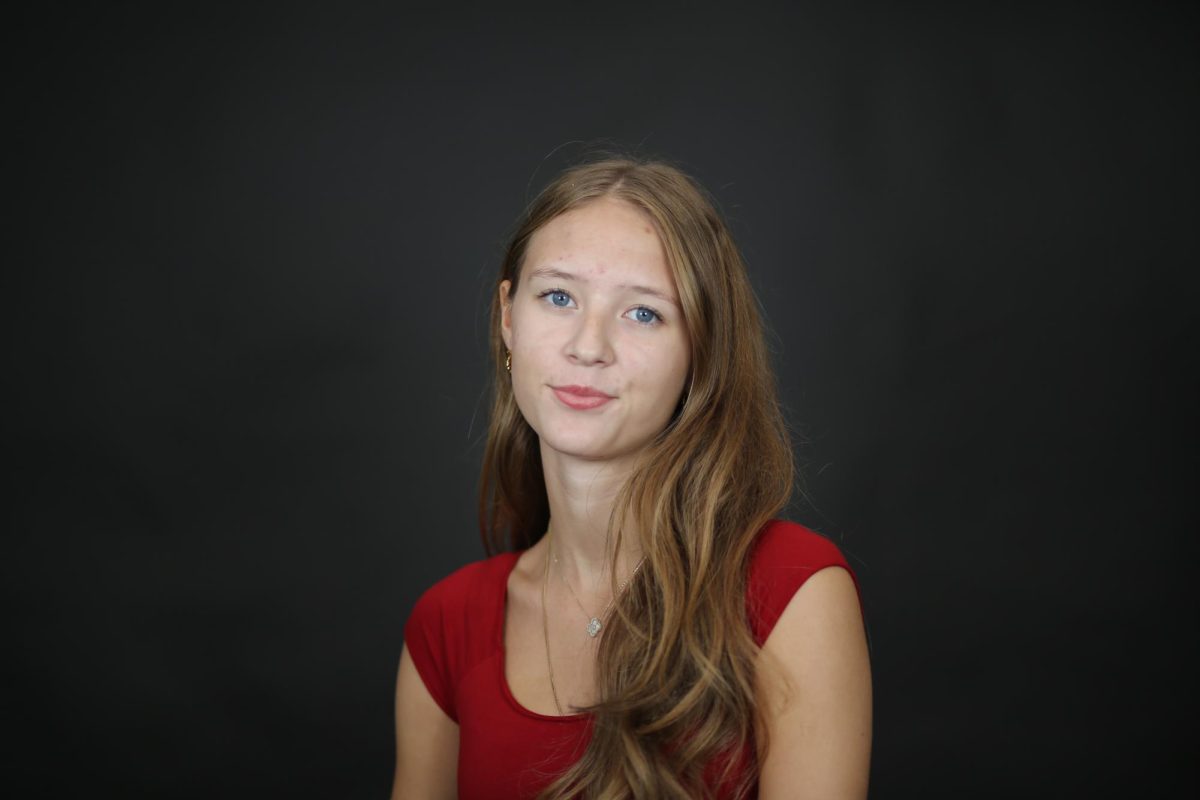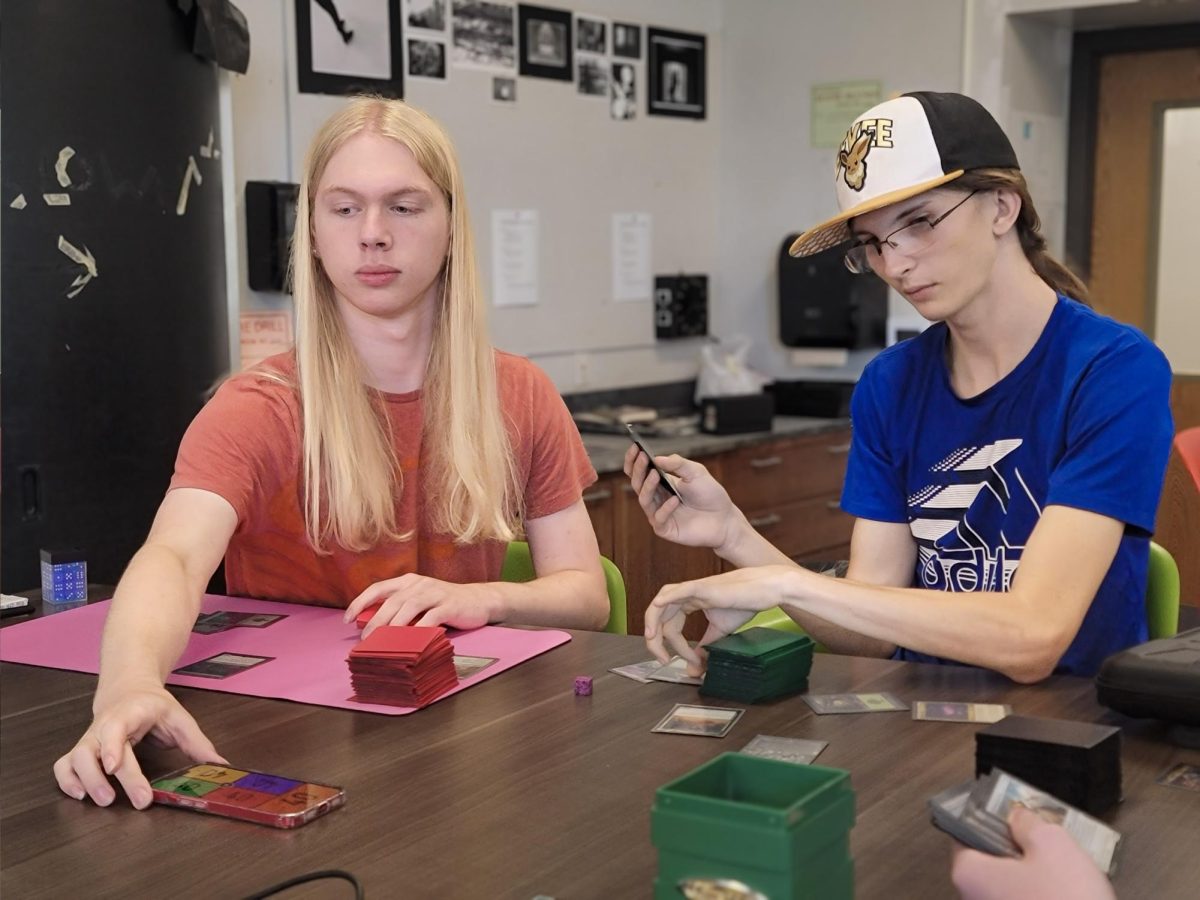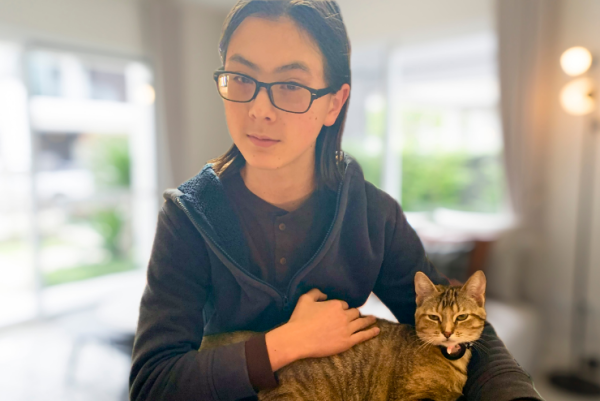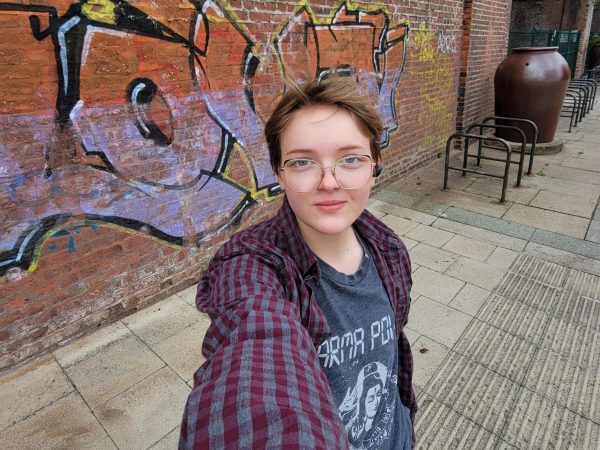Every Tuesday at lunch in room 305, sunlight pours through the windows onto rows of desks where students lean over computers and Xbox controllers. On the projector, the pixelated chaos of “Crawl” flashes across the whiteboard as players take turns battling monsters while others shout advice or cheer at a close call. Around them, screens glow with different games, and conversation fills the room. This is the Video Game Development Club where students gather each week to play, create and learn.
Co-presidents Senior Jay Tiedemann and junior Glenn Kuehn want to transition to a lesson and education-based approach. Last year, students played and discussed video games rather than developing them, but this became increasingly difficult infrastructurally as the club grew to more than 20 members after the club fair. It’s not possible for every student to play the same game. While they still play video games like “Crawl,” there are now lessons and discussions led by Tiedemann and Kuehn.
“I asked people to think about the games that they like to play, and then break them down into the core components of what makes those games tick,” Tiedemann said. “I’m trying to get us all to a point where we can view the gaming world critically and understand the motives, so then we can work towards getting a structure that mirrors those.”
Before they can start coding, the club has to learn about game development and plan what they want their game to look like. They are considering a fan game — an unofficial project created by fans of the original game, often featuring new twists and unique mechanics — called “Black Knuckle” of a first-person roguelite speed climbing game “White Knuckle.” The plot of the game will be an allegory for descending into gambling addiction in which the player is given opportunities to indulge in luck and greed, allowing them to observe their own psychology.
“It’s still pretty early, but I think a lot of people seem excited about it,” Tiedemann said. “I’ve been trying to be engaging and creative and letting people speak their minds on things while still driving us towards some achievable end goal.”
Freshman Mia Benjey has attempted to design games on the online game platform Roblox in the past and is excited to have more guidance in game development. They are interested in the creative aspects, such as voice acting and developing game lore.
“I love that we get the chance to make a game as a group because I was having a lot of trouble making one solo,” Benjey said. “I think [this club is] for me because I meet people through shared interests, like a lot of the people who play video games here.”
Junior Jackson Hunter joined the club last year. He is also attracted to the communicative and social nature of the club, where students can openly share and build ideas, as well as form connections with one another over shared interests.
“You can discuss your ideas about video games and what makes them interesting to you and see who overlaps in that area,” Hunter said. “You could be the one who’s like, ‘the game is about XYZ.’ And then they can be like, ‘Whoa, that sounds so cool. I want to try that,’ It’s quite creative.”
Tiedemann is focused on maintaining the social environment of the video game club while motivating members towards a goal. This is why they leave time for members to talk with one another and play video games during some meetings. Additionally, club members chat outside of school on the messaging app Discord and play online games, such as Minecraft, together.
A major reason Benjey, Tiedemann and Hunter enjoy playing Minecraft with others is to build community. They all view video games as a special way to bring people together. Hunter estimates that as high as 90% of students at Community play or have played some type of popular video game, which he views as a path to connection.
“It’s something you can connect over,” Hunter said. “You play Minecraft and I play Minecraft, That’s super cool. Let’s talk about that here at this club.”
As the club grows, its members see it as a shared hobby and creative community. Tiedemann hopes the club can bridge the gap between simply playing games and understanding what makes them meaningful.



